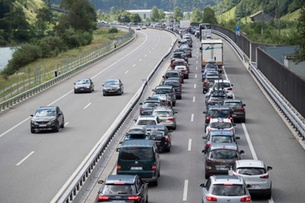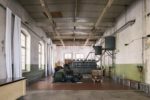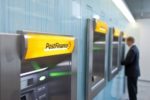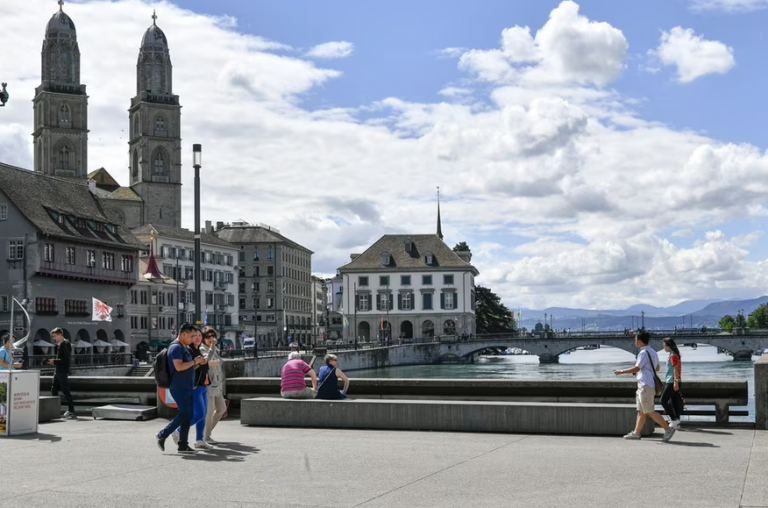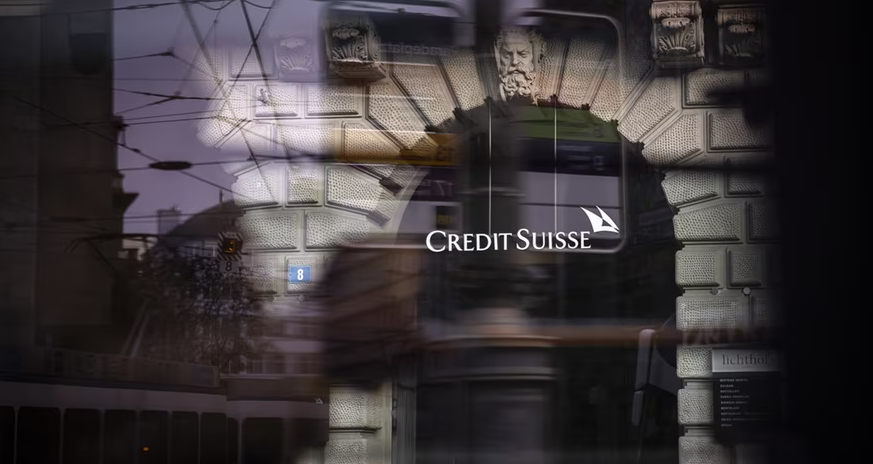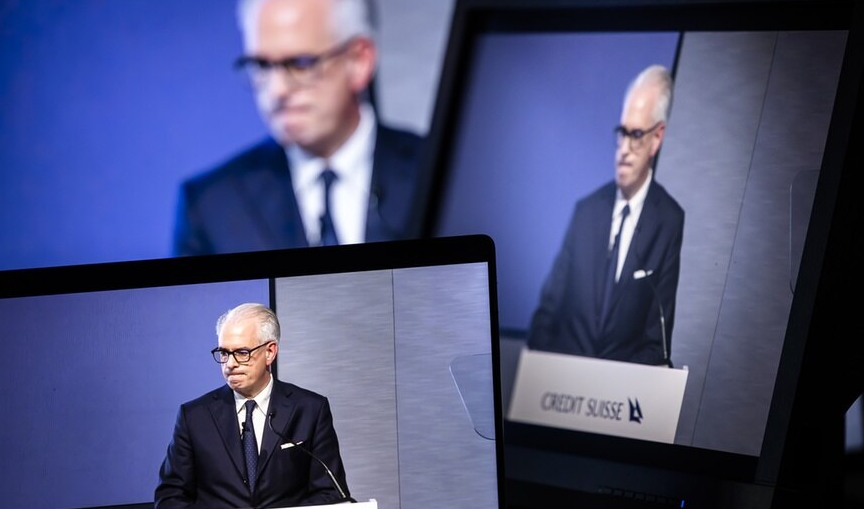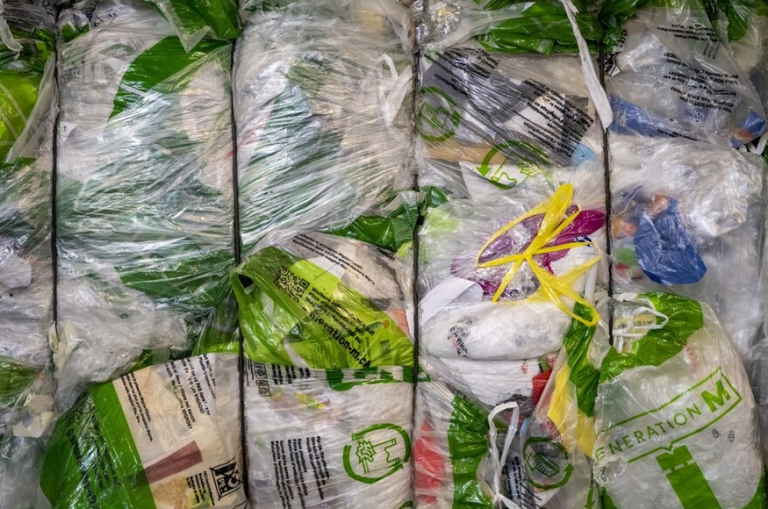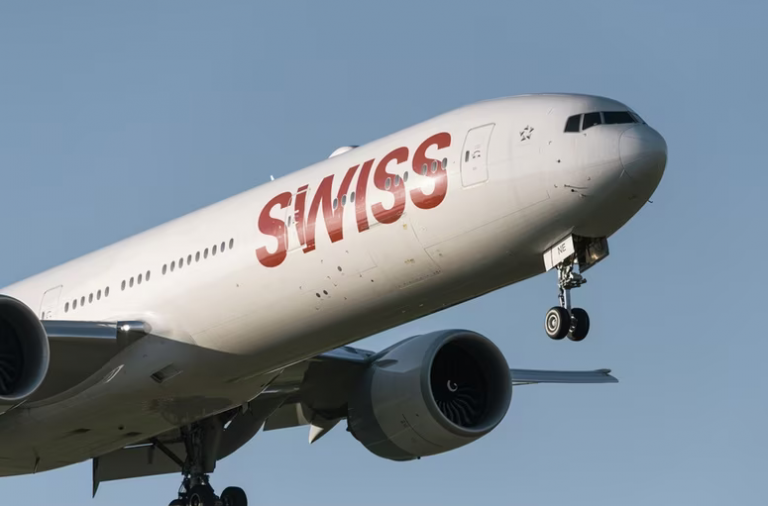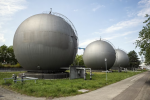Holiday-weekend traffic has been causing long tailbacks at both ends of the Gotthard tunnel in central Switzerland. Reports of two-hour jams on Saturday may re-surface debates about traffic in the region.
As Swiss National Day approaches on 1 August, this weekend saw large movements of traffic crossing the country, with the usual bottleneck of the Gotthard tunnel bearing the brunt of tailbacks.
The 17-kilometre tunnel, which runs from Göschenen to Airolo under the famous Gotthard pass, saw long lines of traffic waiting to enter. At one point Saturday, the queue was 14 kilometres on the north side, while it reached 10-12 kilometres at the south entry.
On Sunday, the difficulties continued: mid-afternoon, the information service of swiss auto group Touring Club Suisse (TCS) reported delays of up to an hour and twenty minutes on both north and south sides.
Alternative routes, mostly to the west, include the Saint Bernard tunnel crossing the Swiss border towards Aosta in Italy, or the Mont Blanc tunnel in France, though these are no strangers to traffic congestion themselves.
Mining the mountain
The Gotthard tunnel, rich in cultural and geographic significance, is one of the main thoroughfares through central Switzerland, linking the German-speaking north with the Italian-speaking canton of Ticino in the south.
Opened in 1980, the road sees up to 17,000 vehicles pass through every day. A separate, 57-kilometre train line – unveiled last year as the longest in the world – also cuts through the mountain.
Debates have accompanied the developments. Most recently, in February 2016, Swiss voters gave the go-ahead to build a second road tunnel, to allow for renovations of the existing infrastructure and ensure better connections between north and south.
In approving the project, they snubbed concerns of the opposition campaign, led mainly by environmental groups and left-wing parties, who saw the construction as a threat to the outcome of another vote, from 1994, promising to cap transalpine road traffic and push heavy-weight trucks onto rail.
The new tunnel, which is estimated to cost around CHF2.7 billion ($2.8 billion), will not open until 2030 at the earliest.
swissinfo.ch and agencies/dos
Tags: Business,newslettersent









